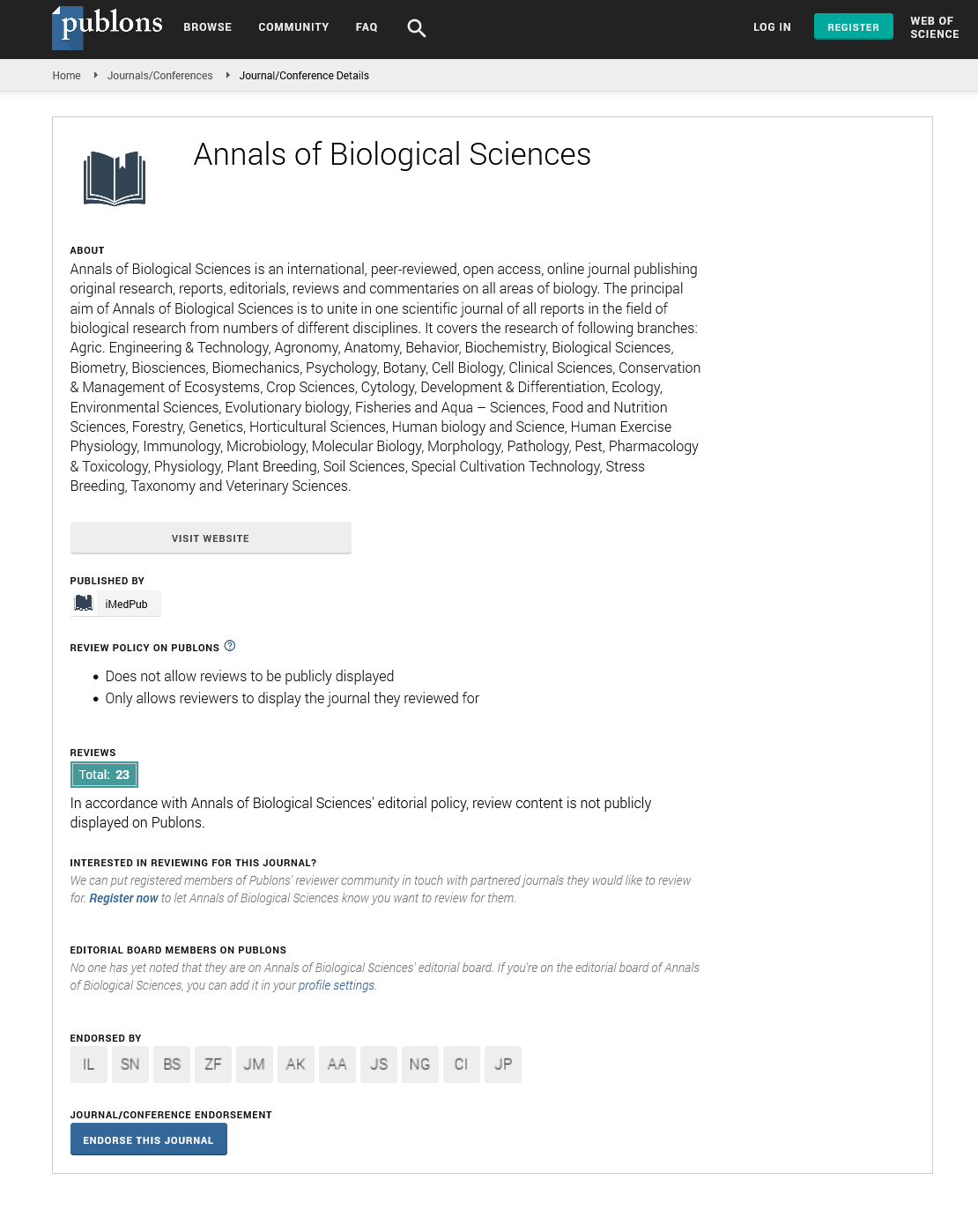ISSN : 2348-1927
Annals of Biological Sciences
Reach Us
 +447897072958
+447897072958
Abstract
Phenol Content and Antioxidative Activity in the Extract of Multiple Sargassum Species
Free radicals are harmful to the human body since it causes damage to cells, and antioxidant compounds can reduce free radicals in the body so that the public demand for antioxidant products increases. However, the available antioxidants are synthetic which are potentially toxic when excessively accumulated in the body. Therefore, it is necessary to trace natural compounds that are natural antioxidants Phenol is one source of antioxidant compounds in seaweed. Jepara coastal waters have abundant seaweed resources, one of which is Sargassum seaweed. This study aims to conduct an evaluation study of the total content of phenol compounds and the antioxidant capacity of various extracts of Sargassum from Jepara beach. This research is expected to be the basis for research on antioxidant supplements for preventive actions. The study was conducted in June 2018, which consisted of sampling, extraction, determination of total phenol and antioxidant activity. Sampling in the study used a purposive method. Antioxidant capacity and total phenol were determined using laboratory experimental methods. The results of the analysis showed that the treatment of different types of extracts resulted in significantly different inhibition percentages (p<0.050). The three extracts with the best percentage of inhibition, sorted from the smallest to the largest, were extracts with ethyl acetate solvents on S. polycistum, S. crassifolium, and S. duplicatum. The extract concentration was directly proportional to the percentage inhibition value (p<0.050). In other words, the higher the concentration of the extract, the higher the phenol content produced (p<0.050). Correlation of total phenol and the percentage of inhibition is linear, with the regression equation and the resulting value of the relationships differing significantly (p<0.05).Author(s): Rini Pramesti, Wilis Ari Setyati, Delianis Pringgenies, Muhammad Zainuddin
Abstract | PDF
Share This Article
Awards Nomination
17+ Million Readerbase
Google Scholar citation report
Citations : 406
Annals of Biological Sciences received 406 citations as per Google Scholar report
Annals of Biological Sciences peer review process verified at publons
Abstracted/Indexed in
- Google Scholar
- China National Knowledge Infrastructure (CNKI)
- WorldCat
- Publons
- ROAD
- Secret Search Engine Labs
Open Access Journals
- Aquaculture & Veterinary Science
- Chemistry & Chemical Sciences
- Clinical Sciences
- Engineering
- General Science
- Genetics & Molecular Biology
- Health Care & Nursing
- Immunology & Microbiology
- Materials Science
- Mathematics & Physics
- Medical Sciences
- Neurology & Psychiatry
- Oncology & Cancer Science
- Pharmaceutical Sciences
